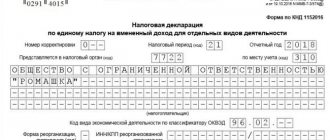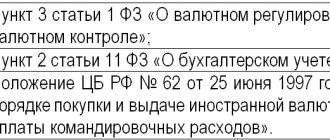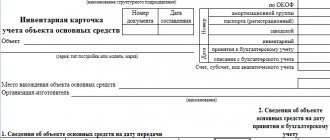Value added tax (hereinafter referred to as VAT) is an indirect tax in the form of withdrawal to the state budget of part of the cost of a good, work or service, which is created at all stages of the process of production of goods, work and services and is contributed to the budget as it is sold.
The government contract between the customer and the supplier in the process of public procurement in the form of an auction is concluded at the price that was recognized as the best during the bidding. The tax system to which the counterparty falls does not matter. Before concluding a contract based on the results of government procurement, it is necessary to calculate the amount of VAT and indicate it in the government contract.
The procedure for calculating and paying such tax is established by Article 21 of the Tax Code of the Russian Federation. Currently, there is a general taxation system and four special taxation regimes.
In this case, most often participants in public procurement use a general or simplified taxation system. Let's consider them sequentially.
The general tax system (OSNO) is used for those enterprises that sell goods at a price significantly higher than cost. The VAT tax rate is 20% from January 1, 2021, for certain groups of goods - 10%.
The simplified taxation system (STS) allows you to “replace” with one tax the taxes paid under OSNO (such as VAT, property tax, in some cases personal income tax (when applying one or another individual entrepreneur taxation system)).
Applicable to entities whose income does not exceed 150 million rubles per year. At the same time, it should not employ more than 100 employees, and the estimated value of the taxable entity itself cannot exceed 150 million rubles. Most often, individual entrepreneurs fall under such requirements. The simplified system does not provide for the payment of VAT.
44-FZ – VAT in the contract price
The state customer, when forming the initial maximum price of the state contract, also includes the amount of VAT in it and indicates the NMCC in the tender documentation, taking into account this tax.
Some customers take into account that companies and individual entrepreneurs under special tax regimes can take part in the bidding, and stipulate that value added tax is taken into account only if the contractor is its payer, i.e. give the winner the opportunity to conclude a contract without VAT.
Note: even if the customer did not specifically note such a condition and, when concluding a contract with the winner on the simplified tax system, demands to pay tax, you can file a complaint with the FAS. In the practice of the antimonopoly authority, such cases have already been considered, and the decision was made in favor of the Supplier. For example, complaint No. 197/KS, despite the fact that the Customer applied to the Arbitration Court, the judges also recognized the decision of the FAS as justified.
Naturally, in such a situation, participants on the simplified tax system have an advantage over participants on the OSNO, because According to Part 1 and Part 2 of Article 34 44-FZ, the contract must be concluded on the terms stipulated in the procurement notice, and the price is fixed and determined for the entire execution period.
This means that the amount of VAT in the contract under 44-FZ, which is obligatory for payment by the participant on OSNO, will be additional income for the participant in the special regime.
Preparation and submission of a complaint to the FAS
to unlawful demands of the Customer
Order
But much more often there are situations when the customer simply indicates in the documentation that the price is calculated taking into account value added tax. The regulatory basis for choosing a method for determining the NMCC and carrying out calculations is Order of the Ministry of Economic Development of the Russian Federation of October 2, 2013 N 567, but this document does not regulate the inclusion of VAT in the contract price. However, when forming the NMCC, the customer must take into account the terms of the planned purchase and, if the subject of the contract contains goods, works or services subject to value added tax, the amount of VAT must be included in the initial (maximum) price.
In this case, the situation is different. If the customer in the contract establishes a condition to issue him an invoice, then based on the same Article 34 of 44-FZ, the contractor will be obliged to do this, because this condition was initially provided for in the auction documentation. As in the case described above, the winner will have to conclude a government contract at the price he offered during the procurement procedure.
Note : an example of consideration of such a complaint and a decision in favor of the Customer can be found here.
VAT on purchases by companies with state participation
The main difference from government procurement is that customers working under the Federal Law of July 18, 2011 No. 223-FZ “On the procurement of goods, works, services by certain types of legal entities” (hereinafter Law No. 223-FZ), themselves establish the procedure for setting prices , including the condition for including VAT in it.
The rules for conducting procurement and determining the contract price are not directly stated in Law No. 223-FZ. The customer must be guided by its own procurement regulations. The procurement documentation specifies a clear procedure for determining the final contract price. All additional costs, taxes, duties, etc. must be taken into account.
For example, when comparing and evaluating applications during a procurement, the customer has the right to determine in the regulations and establish in the documentation the rules for applying the VAT tax deduction in relation to the purchased products. The prices of participants' offers excluding VAT can be used as a single basis for comparing price offers. In cases where the results of the analysis do not allow us to unambiguously conclude that the customer has the right to apply a tax deduction for VAT, or if a tax deduction for VAT is applied to part of the purchased products, it is possible to use the price of the participants’ proposals, taking into account all taxes and fees, as a single basis for comparing price offers and other expenses in accordance with the legislation of the Russian Federation.
Taking into account the above, the contract based on the results of the procurement, the winner of which is the participant applying the simplified tax system, is concluded on the conditions determined by the procurement regulations10. Let's look at a practical example. In the documentation, the customer established that if a participant does not pay tax, the final price of the contract with him is reduced by the amount of tax. At the same time, in the procurement documentation, the customer, by law, must establish one value for the initial price for all (regardless of the taxation system), indicating whether VAT is included in the price or not. The customer does not have the right to deduct any amounts from price proposals and use different procedures for evaluating applications depending on the category of participant. As a result, the Federal Antimonopoly Service decided that the customer had limited competition11.
To avoid conflict situations, many organizations prefer to compare participant offers excluding VAT. Subsequently, the tax amount is added to the final contract price if necessary.
The amount of VAT is reflected in the invoice issued to the customer by the supplier upon delivery of goods or provision of services. Companies operating under a simplified system do not issue such documents to clients. This rule is established by Article 346.11 of the Tax Code of the Russian Federation. If the customer mistakenly allocates the VAT amount in the payment order, then he will not have to pay it.
VAT in the contract for the simplified tax system
If a participant works for the simplified tax system and is not a VAT payer, then fulfilling such conditions will be quite expensive. Because according to paragraph 5 of Art. 173 of the Tax Code of the Russian Federation, in the event that persons who are not taxpayers issue an invoice to the buyer of goods (in this case, the state customer) with the allocation of the amount of value added tax - the entire amount of tax indicated in this invoice is subject to payment to the budget.
Firstly, participants who do not pay attention to the fact that the contract price is indicated with VAT may be in for an unpleasant surprise when it is concluded. Because The price they offer will not include the payment of a 20% tax. In this case, the contractor may sign the contract and perform it at a loss.
Secondly, if the winner refuses to conclude a contract on such terms, then he may end up in the Register of Unscrupulous Suppliers.
Independent verification of the counterparty
What measures can a company take to protect itself from unscrupulous counterparties and what is important to check the counterparty for?
Among the criteria that are worth paying attention to are:
- the correctness of the details in the invoice received from the company;
- the validity of its registration data (whether the company has been excluded from the register of legal entities and individual entrepreneurs), whether the company is on the list of liquidated ones;
- checking senior management for disqualification;
- whether the company is a shell company;
- existence of debts on taxes and fees;
- form of taxation.
Today, a significant amount of information about a legal entity can be obtained from the electronic services of the Federal Tax Service (they are combined in the block “Check if your business is at risk?”).
The service “Information on state registration of legal entities, individual entrepreneurs, peasants/farms” (https://egrul.nalog.ru) allows you to understand whether the company is registered in principle, information about its management, etc. An extract from the Unified State Register of Legal Entities is also available for download here/ EGRIP.
The invoice verification service (https://npchk.nalog.ru) allows you to check the correctness of the submitted invoice. Since, according to the new rules, starting from 2015, information in the VAT return must contain data from the Book of Purchases and Sales, this resource will save time on identifying errors in the declaration.
The search can be conducted using the organization's INN/KPP.
Practice of FAS and AS on contracts with VAT
Suppliers working on a simplified taxation system, when faced with 44-FZ contracts with VAT, often file complaints with the FAS: at a maximum, in order to sign an agreement without taking into account the tax, and at a minimum, to refuse the conclusion without entering into the RNP.
The practice of the Federal Antimonopoly Service, as well as Arbitration Courts, in this matter is ambiguous. Much depends on the position of a particular management.
In our work practice, we attended meetings where representatives of regulatory authorities recognized the customer’s right to demand that the winner of a government order issue an invoice. Thus, even if the supplier is under a special tax regime, he will have to file a tax return and pay VAT on the price of the government contract.
And in this case, “simplified” organizations are in a less favorable situation than companies on OSNO, because companies with the simplified tax system will not be able to deduct the amount of this tax, unlike companies on the general taxation system.
If you work under a special taxation regime, then it is important to review the terms of the government contract also in terms of including VAT in the NMCC. After all, even if you win a tender, the execution of which involves issuing an invoice and paying taxes to the budget, and contact the FAS to protect your interests, there is a high probability that the decision will be made in favor of the customer.
Due to the lack of unity in the practice of the Federal Antimonopoly Service and the Arbitration Courts, it is impossible to predict in advance the outcome of the meeting on VAT issues in contracts under 44-FZ. It would be most rational to study similar cases in the region of interest and rely on the practice of a particular OFAS.
© LLC MKK "RusTender"
The material is the property of tender-rus.ru. Any use of an article without indicating the source - tender-rus.ru is prohibited in accordance with Article 1259 of the Civil Code of the Russian Federation
Searching for information in the register of disqualified persons
(https://service.nalog.ru/disqualified.do) allows you to check by full name, name and details of a legal entity whether the manager is on the list of disqualified persons.
You can also look for the leader in the list of those who are prohibited from leading the organization.
Some of the signs that a company is a one-day company are: the fact that several legal entities are registered at its legal address (so-called “mass registration addresses”; verification according to this criterion can be carried out at https://service.nalog.ru /addrfind.do); the fact that its director is the founder of several legal entities at the same time (you can check this data at https://service.nalog.ru/mru.do).
The service “Information on legal entities that have tax arrears/do not submit reports” allows you to identify legal entities with arrears to the budget. If a company is on this list, this increases the risk that it will not remit VAT and it will be impossible to offset it in the future.
Explanations on the topic
| Main points | Document details | Download |
| On a change in the contract price due to an increase in the VAT rate and the possibility of purchasing services for technological connection from a single supplier. | Letter of the Ministry of Finance No. 24-03-07/42233 dated 05/21/2020 | |
| On the conclusion and payment of the contract, if the winner of the purchase applies the simplified tax system, and on his payment of VAT. | Letter of the Ministry of Finance No. 24-01-06/36900 dated 05/07/2020 | |
| On establishing requirements for participants who apply different taxation systems (reducing or increasing the proposed maximum starting price by the amount of VAT) in procurement under 223-FZ. | Letter of the Federal Antimonopoly Service No. AD/66562/18 dated 08/22/2018 |







